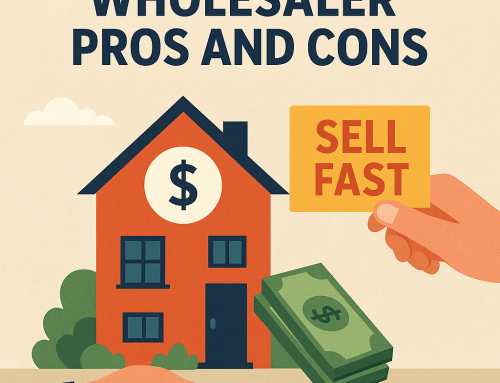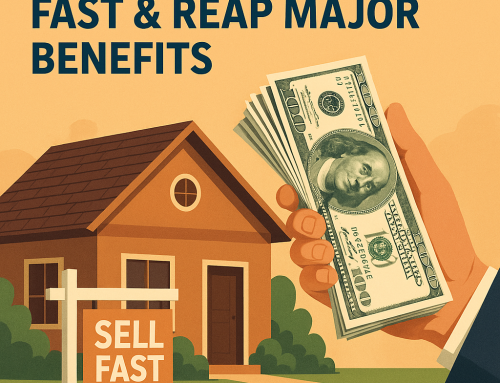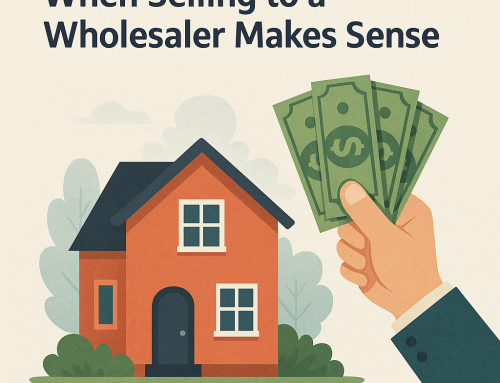- Understanding Wholesalers
- Pros of Using a Wholesaler:
- Cons of Using a Wholesaler:
- Working with a Real Estate Agent
- Pros of Using a Real Estate Agent:
- Cons of Using a Real Estate Agent:
- Making the Decision
- Conclusion
When those unforeseen circumstances arise, such as financial challenges or the desire to relocate quickly, homeowners often seek to sell their property with urgency. The process can be daunting, especially when trying to decide whether to work with a wholesaler or a traditional real estate agent. Both avenues offer distinct advantages and disadvantages, particularly when it comes to cash for home offers and selling homes quickly. Here’s a detailed look at the pros and cons of each option.
Understanding Wholesalers
Wholesalers act as middlemen in real estate transactions. They often work with property owners who want to sell quickly and are willing to accept a lower price for an expedited sale. Wholesalers usually don’t buy the property themselves. Instead, they will negotiate a purchase contract with the seller, then sell that contract to an end buyer.
Pros of Using a Wholesaler:
1. Quick Transactions: Wholesalers often have cash buyers lined up, allowing homeowners to sell their property fast.
2. No Repairs Needed: As a cash buyer, wholesalers often purchase homes in “as-is” condition, so homeowners can skip costly repairs and renovations.
3. Less Paperwork: The process is typically more straightforward with fewer legalities involved, which can save time for the seller.
Cons of Using a Wholesaler:
1. Lower Offers: Wholesalers tend to offer less than market value, which can be a downside for homeowners seeking the best price.
2. Uncertain Buyer: Since wholesalers are not usually direct buyers, potential sellers may experience anxiety about who will take over the contract.
3. Market Knowledge: Wholesalers may not always have the extensive local market knowledge that a real estate agent might possess, potentially leading to unfavorable selling conditions.
Working with a Real Estate Agent
Real estate agents have specialized training and market knowledge to guide homeowners through the selling process. They work on a commission basis, using their expertise to market homes effectively and negotiate favorable deals.
Pros of Using a Real Estate Agent:
1. Higher Sale Price: Real estate agents often achieve higher sale prices than wholesalers, thanks to their market knowledge and negotiation skills.
2. Comprehensive Marketing: Agents provide a full suite of marketing services, which can attract a larger pool of buyers compared to wholesalers.
3. Guidance Through the Process: They help navigate the complexities of selling a home, including paperwork, inspections, and closing processes.
Cons of Using a Real Estate Agent:
1. Time-Consuming: Selling through a real estate agent can take longer, especially if repairs or staging are necessary before listing.
2. Costs and Commissions: Agents typically charge a commission fee, which can cut into the overall profit from the sale.
3. Possible Delays: The traditional selling process can be filled with uncertainties and delays, which may not suit sellers needing to cash in quickly.
Making the Decision
Choosing between a wholesaler and a real estate agent ultimately depends on a homeowner’s specific situation. If quick cash for a home is the primary concern, and the seller is okay with a lower offer, working with a wholesaler has its merits. Conversely, if maximizing profit and navigating the complexities of the market are priorities, an agent may be the more suitable choice.
Conclusion
Both wholesalers and real estate agents present valid options for selling a home. By carefully evaluating the pros and cons of each path, homeowners can make informed decisions that align with their financial goals and timelines. Whether looking to sell a home fast or weighing potential profits, the best choice is the one that meets your individual needs and circumstances.




